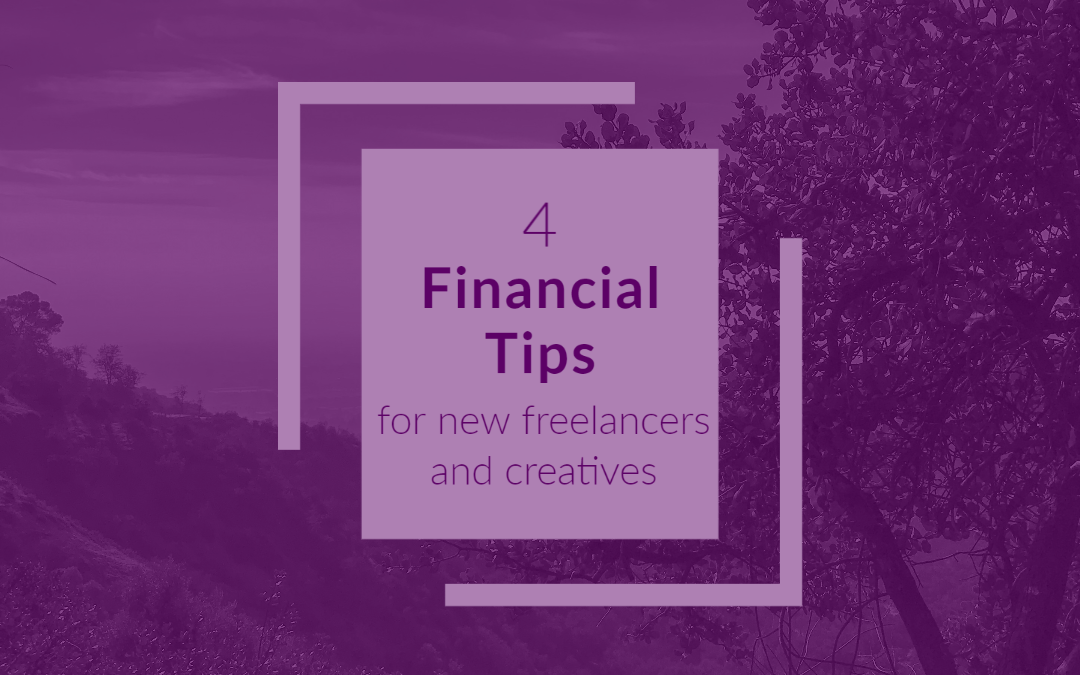According to Forbes Magazine, 1.57 million Americans are part of the gig economy. With money being at the forethought for a lot of us right now, I wanted to share a few good tips about money for new freelancers and independent creatives.
Tip 1: Separate Your Business Money from Your Personal Money
Create two different bank accounts for your business’ money and your personal money. One good reason to do this is that you can more easily see how much your business’ makes and monitor your expenses. Another good reason is to help you budget for your business and simplify things during tax time!
Tip 2: Save those dollars
The experts say to save a portion of your check each month as well as invest it to create a nest egg that can be used in case of emergency or job loss. However, as a freelancer, income is not always steady, especially in the beginning, but that doesn’t mean you can’t save!
I spoke to Financial Planner, David Olivera, about his tips for saving money the smart way. He recommends to his clients a minimum of a 3-6 month emergency fund, but to ideally have a fund that can last you for a year of basic needs such as housing and food, not things like streaming tv subscriptions or fancy coffees! You never know when the unexpected will happen and being prepared makes these surprises easier to handle!
He also recommends making sure you take your slow sales period into account and save money accordingly during your busy season so you can pay bills during the slow period without feeling stressed out.
His final savings tip is to get your money to work for you. He says “Nothing wrong in working for money but get to the point where you have money work for you. The sooner you get this happening the sooner you’ll become debt-free, financially independent and ultimately get to the point where you can be working because you want to and not because you have to regardless of if you love what you do or don’t. Getting to that point gives life a completely different outlook and it’s what we show others how to do” If you’re interested to learn more about David and how he helps people work with and learn about their money you can visit his website.
Tip 3: Know what you’re owed
I feel like this should go without saying, but I’m saying it anyway…keep track of your income and your expenses! It’s in your best interest to stay on top of financial tasks such as submitting invoices to clients, process paid receipts to clients and logging recently paid bills. This gives you a handle on what you’re actually making and spending in addition to who might still owe you money or which bills are outstanding. You can do this as they occur or you can do it in batches one day a week, but make sure it gets done. I tell you from first-hand experience it’s really easy to push off tasks like this to “later.”
Tip 4: Budget Smart
There are few methods to budget but do make sure you have one. Know what’s needed for necessities each month, for wants such as fancy coffees or nights out with friends, etc and what’s being set aside for savings. A great budget tip from an article on Nerdwallet is the 50/30/20 budget. 50% is used on basic needs such as rent and groceries. While 30% is used for wants like those fancy coffees I keep mentioning and the remaining 20% is used for savings and paying down debt.
I think this is a great method for freelancers and independents because it doesn’t work on fixed amounts. It can be really hard during the slow season to have a certain dollar amount available for something, but with a percentage system you can spend what you have made whether that’s $1,000 or $100, 000
Another solid method for budgeting that I got as a newbie independent designer was to take out 10% for your savings right away and then divide up the remaining 90% paying necessities first and anything left could be used as “fun money”
Whatever method you use, the most important part is keeping track of everything and that can be done simply with a spreadsheet, or you can use any number of popular budgeting apps.
While I’m no financial expert, I’ve been freelancing for a while now and have learned a few things about good ways (and bad ways) to manage and keep track of your money! I hope these tips get you started on the right foot to your own financial mastery. Remember, if you need help with finances, find an expert you trust and have them guide you! Here’s to your success!

